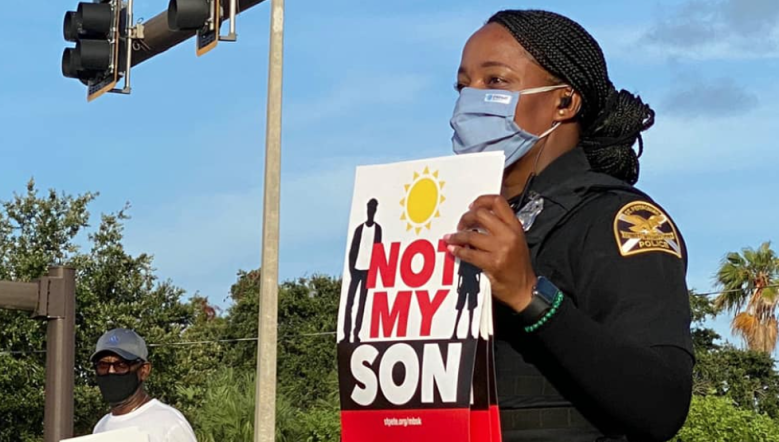
After months of protests and calls for changes in policing policy following the killing of George Floyd by a Minneapolis police officer, The St. Petersburg Police Department in Florida is making a big change.
Instead of hiring 25 more officers over the next two years as planned, St. Pete police are creating a new division of social workers who will respond to several types of non-violent calls. The experiment will start on Oct. 1 and after a year the agency says they’ll assess whether using social workers in some situations was a good thing, or if police intervention was still needed.
Calls that will now be handled by the new division, called the Community Assistance Liason, or CAL, are disorderly intoxication, drug overdoses, intoxicated persons, mental health crisis, mental health transport, suicide crisis, disorderly juveniles — including elementary ages, truancy, panhandling, homeless complaints and neighborhood disputes.
The St. Pete Police Chief Said This Is What the Community Wants So They’re Trying It
St. Petersburg Police Chief Anthony Holloway said, “we’re going to make this work because this is what the community is asking for.”
He said many officers are young and not necessarily trained to deal with all the types of calls they deal with. Trained social workers could be better in many cases, especially in cases where juveniles are concerned.
The changes will mean that some of the people the social workers deal with won’t end up in the criminal justice system, and the social workers will follow up with those involved to try to work with those who need help.
Holloway said having social workers deal with some issues rather than police showing up would mean people may not feel they’re in trouble with the police.
“A call team is out there so when that person is in a crisis that they’re not looking at this uniform and all the things on this uniform. You’re looking at someone else to come in to help them through a crisis,” he said.
Officers will also have more de-escalation training. Holloway said right now they only train on that once a year. They will try to do it twice a year or maybe every other month he said so that officers are better at defusing situations before they turn violent.
Holloway said they’ll train more often in self-defense too, “so we don’t have to go to our weapons all the time.”
The agency will also review its policies and its equipment, and will spend more time in the communities getting to know people, Holloway said. They’ll look back at who’s been arrested and why and assess that going forward. Holloway said another change will be that someone from the community will sit on the hiring board.
St. Pete Police Will No Longer Respond To Calls About People Deemed Suspicious But Who Are Not Breaking The Law
Holloway said, “Believe it or not, we still get some calls about there’s an African American sitting in the park and he doesn’t look like us. We’re not coming to those calls on that person if he or she is not committing a crime. We’re not going to do that. And we’re going to make sure we get information out to the community…this is just the beginning of some new changes.”
St. Petersburg is made up of predominately white and Black residents, with 69% white and 22% Black, according to data from the city. Protests in St. Petersburg have been ongoing, yet stayed peaceful overall.
Police will continue to respond to violent calls and when there are life-threatening situations, they said.
READ NEXT: Trump Threatens to Defund Schools That Don’t Open Amidst Coronavirus Pandemic